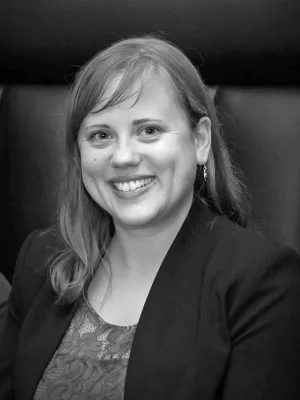
Linda Eitrem Holmgren
Administrativ koordinator | Forskningsstöd MECW | Webbredaktör CMES | PhD | Forskare

Building Gender-Just Citizenship in Northern Ireland : Women’s Political Participation and Transversal Politics in a Deeply Divided Society
Författare
Summary, in English
The thesis argues that conservative gender norms of citizenship and ethnonationalism obstruct gender-just citizenship. Finding ways to challenge such notions is therefore crucial to recognise, legitimise and encourage women’s participation. The thesis identifies several indications of pushback against women’s descriptive and substantive representation in post-Agreement NI. Progressive gender equality developments have been impeded by ethno-national political unwillingness to address women’s rights, restrictive consociational structures, material barriers to political activity and lack of recognition of women’s participation, partly due to an understanding of political activity as limited to engagement with the formal political system.
The thesis finds that the women’s and feminist sectors approach crosscommunity activities and transversalism in varied ways. It recognises the potential for inter-sector cooperation in terms of transversal politics and intersectionality and discusses possibilities and challenges to further uniting the sectors. Inspired by women’s grassroots cross-community work, the thesis explores transversal citizenship as a way to mitigate the negative consequences of gendered ethnonationalist politics on women’s participation and the gap between formal and informal politics. The strength of transversal citizenship lies in its potential to accommodate intersectional identities, encourage multi-layered participation and facilitate coalitions across difference. Several party-political and civic routes through which to channel women’s participation in informal politics into the formal political system are evaluated in terms of transversal citizenship, demonstrating the challenges of translating it from theory to practice.
Publiceringsår
2020
Språk
Engelska
Dokumenttyp
Doktorsavhandling
Förlag
Transitional Justice Institute, Ulster University
Ämne
- Political Science
Nyckelord
- genus
- kvinnor
- politiskt deltagande
- medborgarskap
- transversal politik
- Nordirland
- etnonationalism
- delat samhälle
- gender
- women
- political participation
- citizenship
- transversal politics
- Northern Ireland
- ethno-nationalism
Status
Published
Handledare
- Kris Brown
- Eilish Rooney

